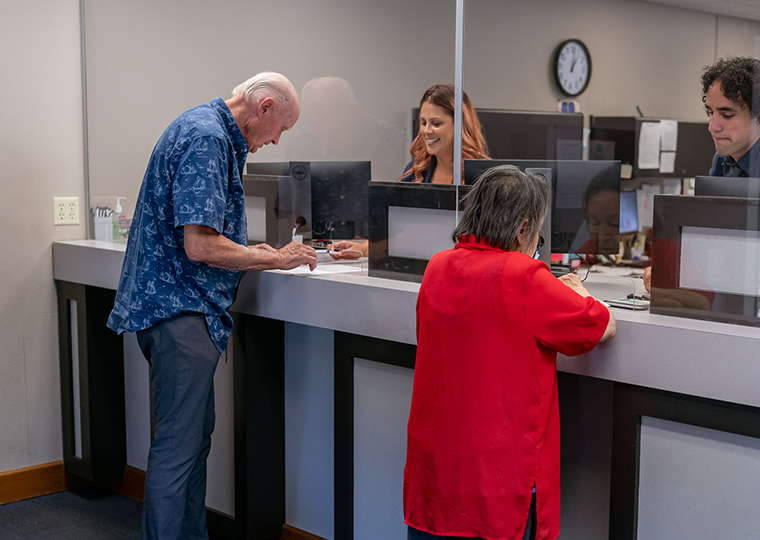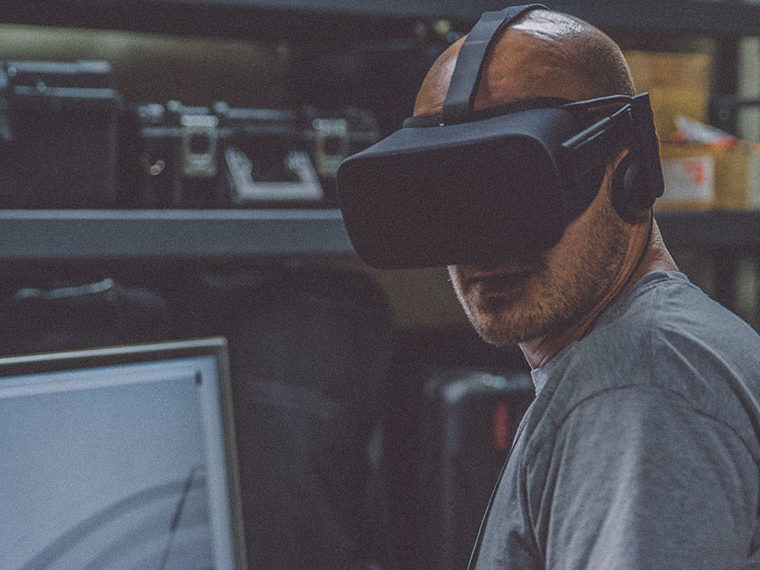The ethics of asking brain surgery patients to allow unrelated research while on the operating table
With 86 billion neurons, complex is a ridiculously insufficient description of the operating system that is the human brain. While biotech advances over the past 20 years have ushered in breakthroughs in treatments for some brain disorders, neuroscience research remains essential. We know what we know, but there’s still a lot about the brain we don’t know. The BRAIN research initiative run through the National Institutes of Health has a $680 million budget for fiscal year 2023.
Researchers from UCLA David Geffen School of Medicine, UCLA Anderson and University of Texas Southwestern Medical Center offer a cautionary note on the ethics of how patient consent is obtained when two arms of neuroscience — clinical treatment and research — intertwine on the operating room table.
Deep Brain Stimulation’s Research Opportunity
The neuroscience specialty of deep brain stimulation is an FDA-approved treatment that involves implanting electrodes in the brain that can then be stimulated to help in the treatment of movement disorders such as Parkinson’s disease, epilepsy and dystonia. Think along the lines of a pacemaker for the brain. Worldwide it is estimated 12,000 DBS procedures are conducted annually, and expansion of its use for psychological disorders — it is currently an option to treat some cases of depression and obsessive compulsive disorder — may increase usage.
Opt In to the Review Monthly Email Update.
The process of implanting a DBS device typically requires a conscious patient who can help the medical team test and calibrate the device. Patients are either conscious throughout — a local anesthetic is applied — or are awakened during the operation to test the device.
And an awake patient is catnip for research. Often, during a clinical procedure to implant a DBS device, there is a brief interlude — with the prior consent of the patient — when research is conducted. Come for the clinical treatment, stay for helping advance neuroscience.
UCLA Geffen Medical School’s Ally Peabody Smith, Lauren Taiclet, Lilyana Levy and Ashley Feinsinger; UCLA Anderson’s Megan Weber, a Ph.D. student, and Eugene Caruso; and University of Texas Southwestern Medical Center’s Hamasa Ebadi and Nader Pouratian suggest this dual-purpose procedure raises ethical concerns. While the treatment is conducted for the direct potential benefit of the patient, the research typically is not intended to improve the patient’s medical condition.
The researchers interviewed patients who had agreed to “basic brain research” being coupled with their DBS implant procedure. Such basic research has no therapeutic value for the patient but can advance the ball for more general understanding of brain function.
The team of researchers suggests the current method for obtaining prior consent for research that occurs during a DBS procedure could benefit from a few changes to better ensure patient awareness of the treatment/research disconnect and of their agency in whether or not to agree to the additional step in their surgery.
Trusting the Physicians
Their research centers the patient in their investigation, noting that “researchers risk over-privileging the values of the scientific community in research design, consent practices and normative judgments of permissibility.” They conducted in-depth Zoom interviews with 14 patients who had undergone a DBS procedure and also agreed to the research phase being added to their DBS treatment. Results were reported in the American Journal of Bioethics’ publication Empirical Bioethics.
The team’s analysis of the qualitative feedback suggests that a patient’s intense (and understandable) trust in their medical team seems to feed an eagerness to agree to the research phase. Patient trust also seems to tamp down introspection about the potential risks of the research phase. That said, having already consented to the invasive DBS procedure itself, thoughtful processing of the research phase wasn’t a priority.
As one study participant remarked, “They were already inside my head to begin with.”
And there wasn’t great danger involved. “The additional risks of the research are considered low, contributing to the rationale that the knowledge to be gained through intraoperative studies is reasonably balanced against the minor increase in individual risk,” according to the authors.
The 14 patients were asked to participate in one of two studies. One looked at “brain signals that control movements, changes in those brain signals in people with neurological disease, and how treatments such as deep brain stimulation surgery affects those brain signals,” the authors note. The other concerned motor control.
The researchers also found hints that while patients knew that the research phase would have no direct or immediate impact on their treatment, they nonetheless were predisposed to see their participation as a way of helping other people with their disease or other brain disorders. Yet that’s not the focus of, nor even the implicit long-term goal of, such basic research. Often the research is to learn more about how the brain functions, not directly how to potentially treat any disease.
The researchers warn that any implicit belief participants may have in the downstream clinical payoff of the research — what they term translational misconception — may improperly compel them to participate.
“The value patient-participants place in basic brain research may play a central role in their decisions to join,” they write. “If this value is in part grounded in views about the translational nature and likelihood of research that are inaccurate or misguided, then this may threaten valid consent.”
Offering Other Opportunities to Ensure Consent
In a follow-up paper published in the journal Neurology, Peabody Smith, Pouratian and Feinsinger proposed two potential changes to the consent process that might address the unintended ways patients may be unwittingly compelled to participate. They recommend introducing an outside third-party patient advocate to handle the consent process for the research arm, rather than have the (deeply trusted) doctor or other member of the medical team explain things and obtain the consent.
This explicit decoupling of the clinical consent from the research consent may better ensure potential participants can make a clear-eyed decision about the research unencumbered by their sense of trust in (or obligation to) their medical team.
They also suggest that, when possible, patients who have given prior consent for the research portion be asked for verbal re-consent on the operating table right before the research stage of the procedure is to begin. Just as a way to provide the patient with more agency in real-time as to whether in the discomfort of the procedure — the patient’s head is in a brace that is secured to the operating table — they are still motivated to help research that may advance neuroscience, and may one day help treatments for others with brain disorders, but will have zero impact on the outcome for their illness or treatment.
Featured Faculty
-
Ally Peabody Smith
Postdoctoral Researcher
-
Lauren Taiclet
David Geffen School of Medicine, medical student
-
Lilyana Levy
Department of Medicine, postdoctoral scholar
-
Ashley Feinsinger
Faculty, Department of Medicine, David Geffen School of Medicine
-
Megan Weber
Behavioral Decision Making, Ph.D. candidate
-
Eugene Caruso
Associate Professor of Management and Organizations and Behavioral Decision Making
About the Research
Peabody Smith A., Taiclet L., Ebadi H., Levy L., Weber M., Caruso E.M., Pouratian N., & Feinsinger A. (2022). “They were already inside my head to begin with”l;kok: Trust, Translational Misconception, and Intraoperative Brain Research. AJOB Empirical Bioethics, 1-14.






